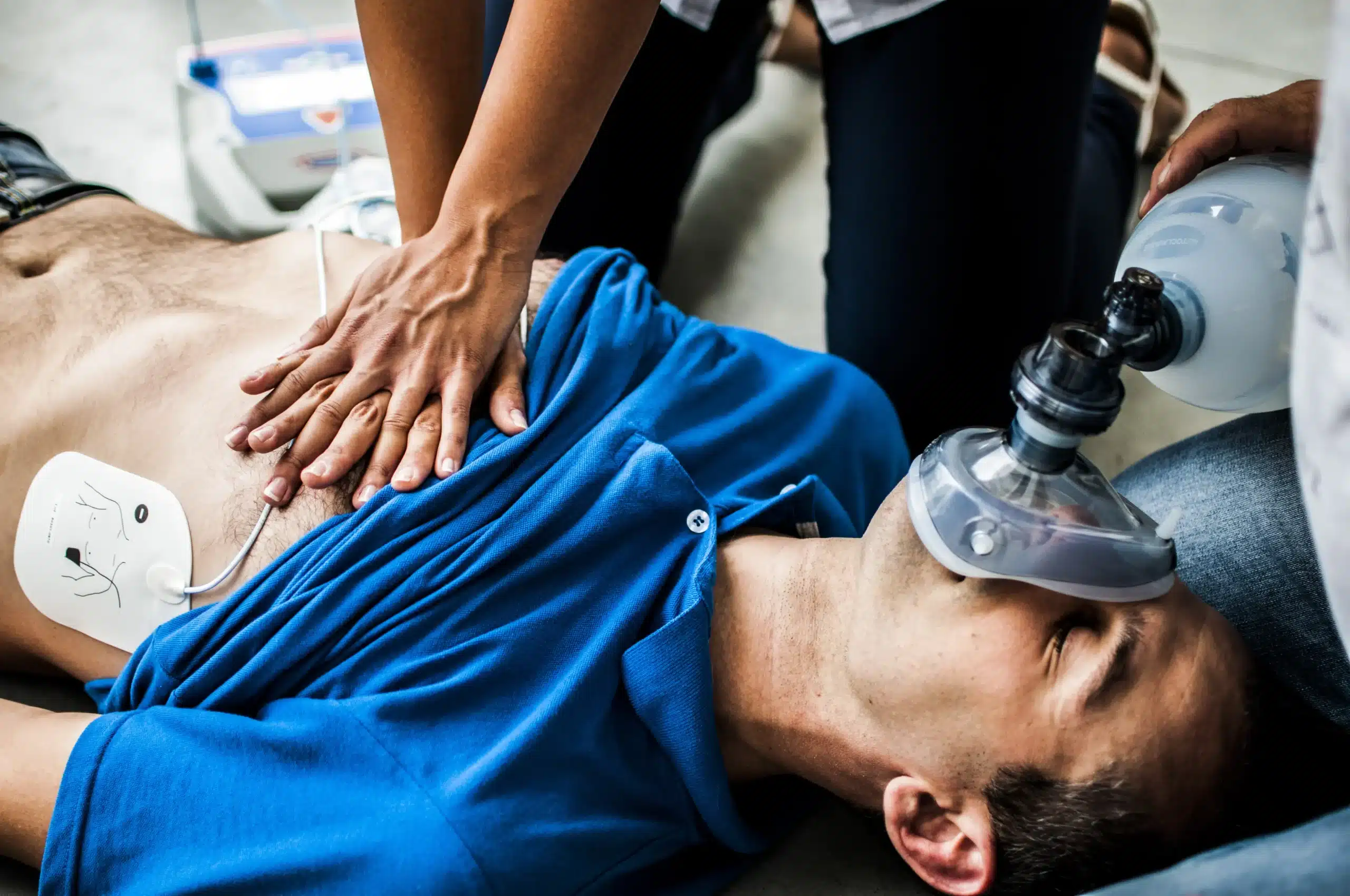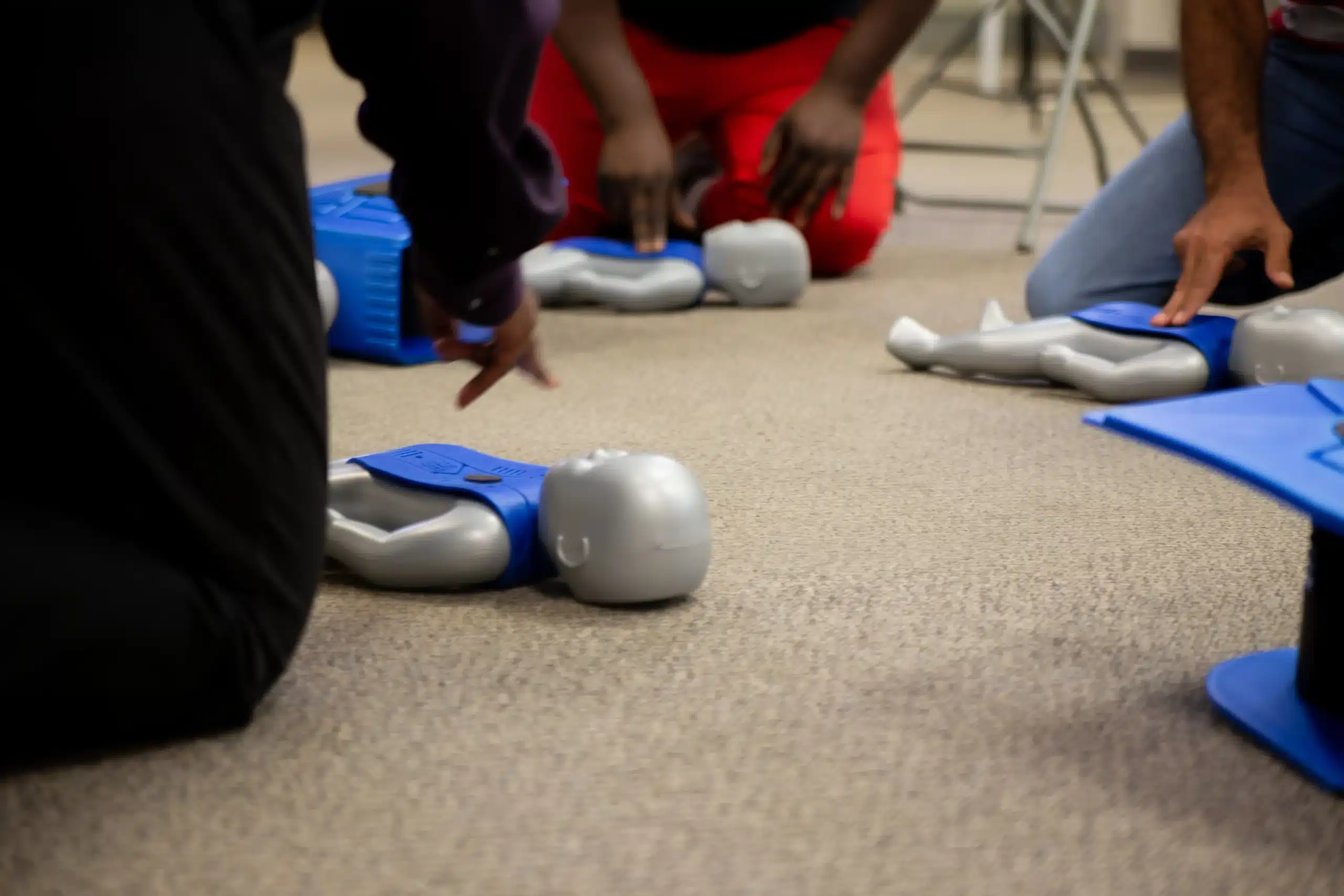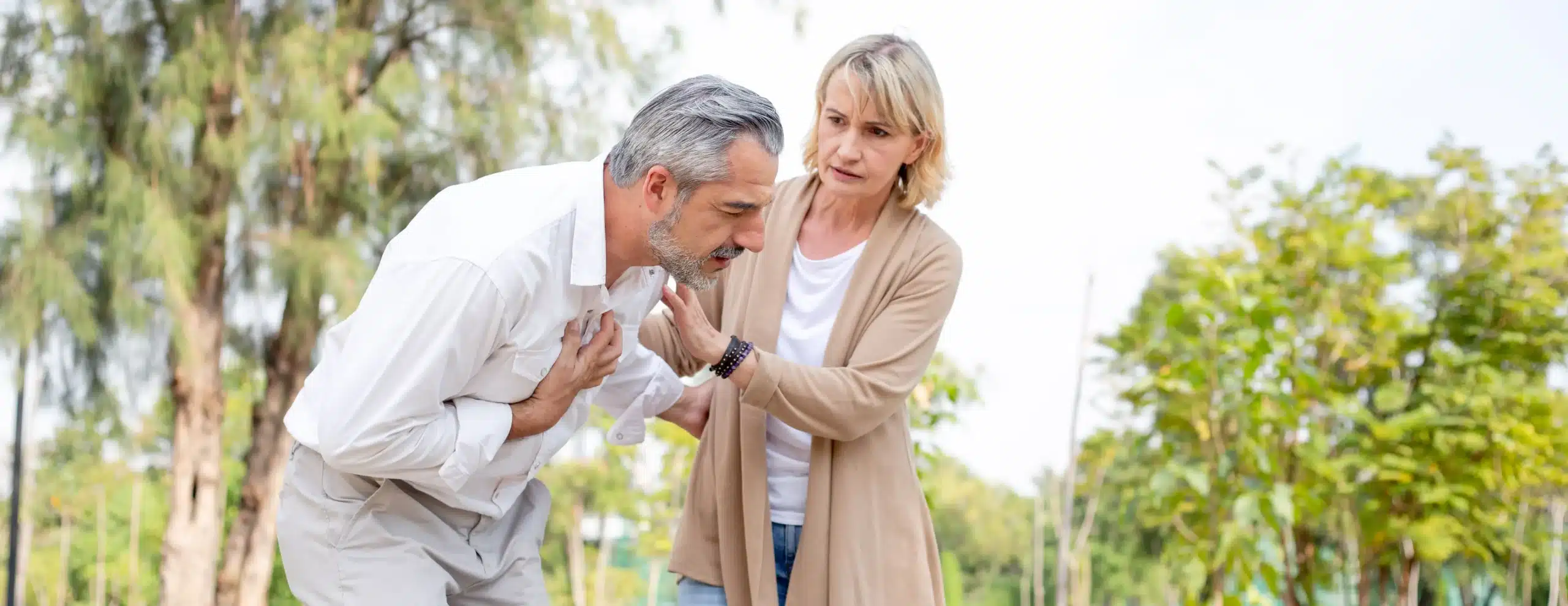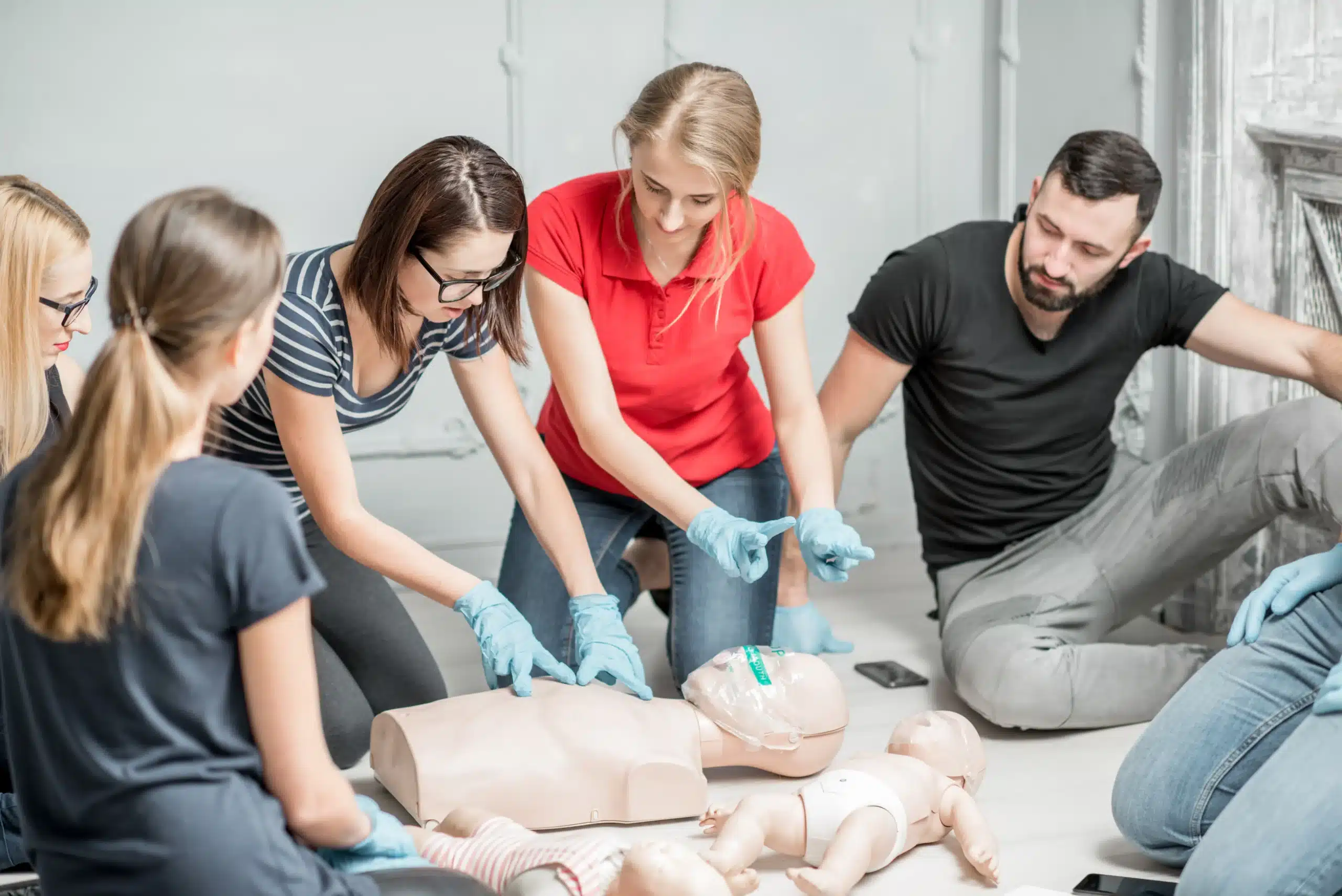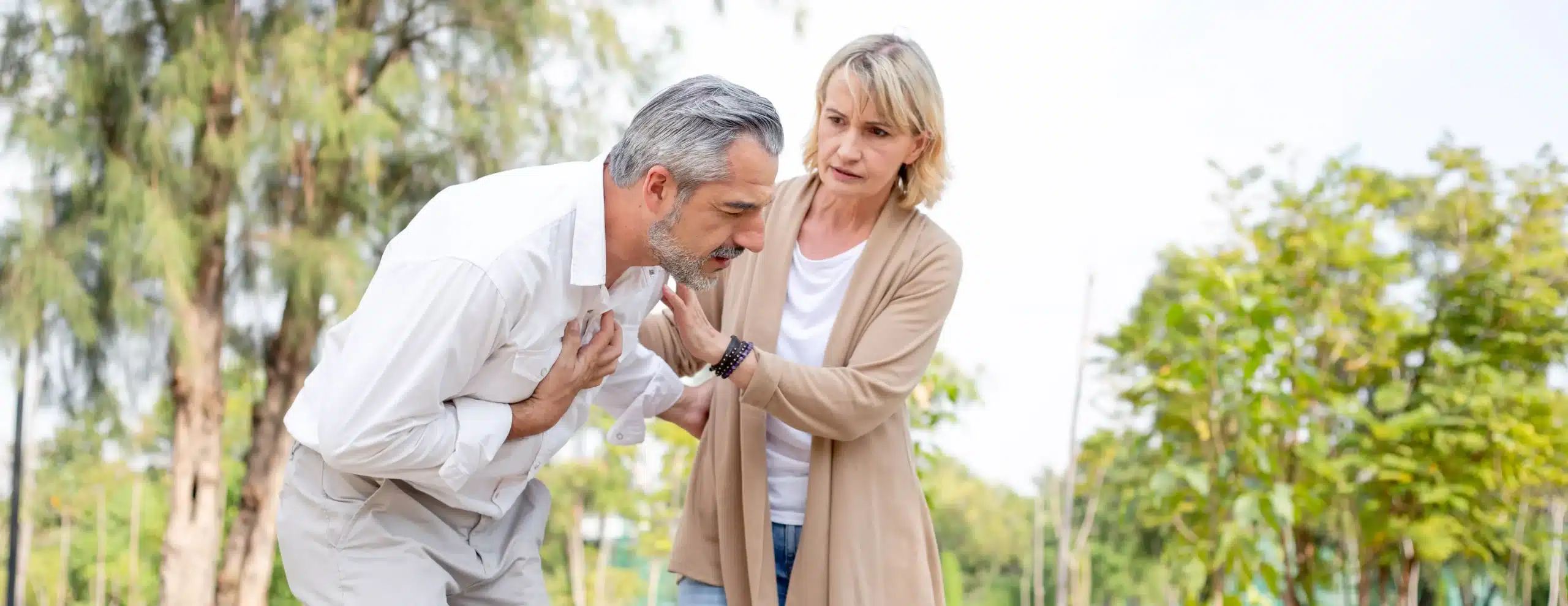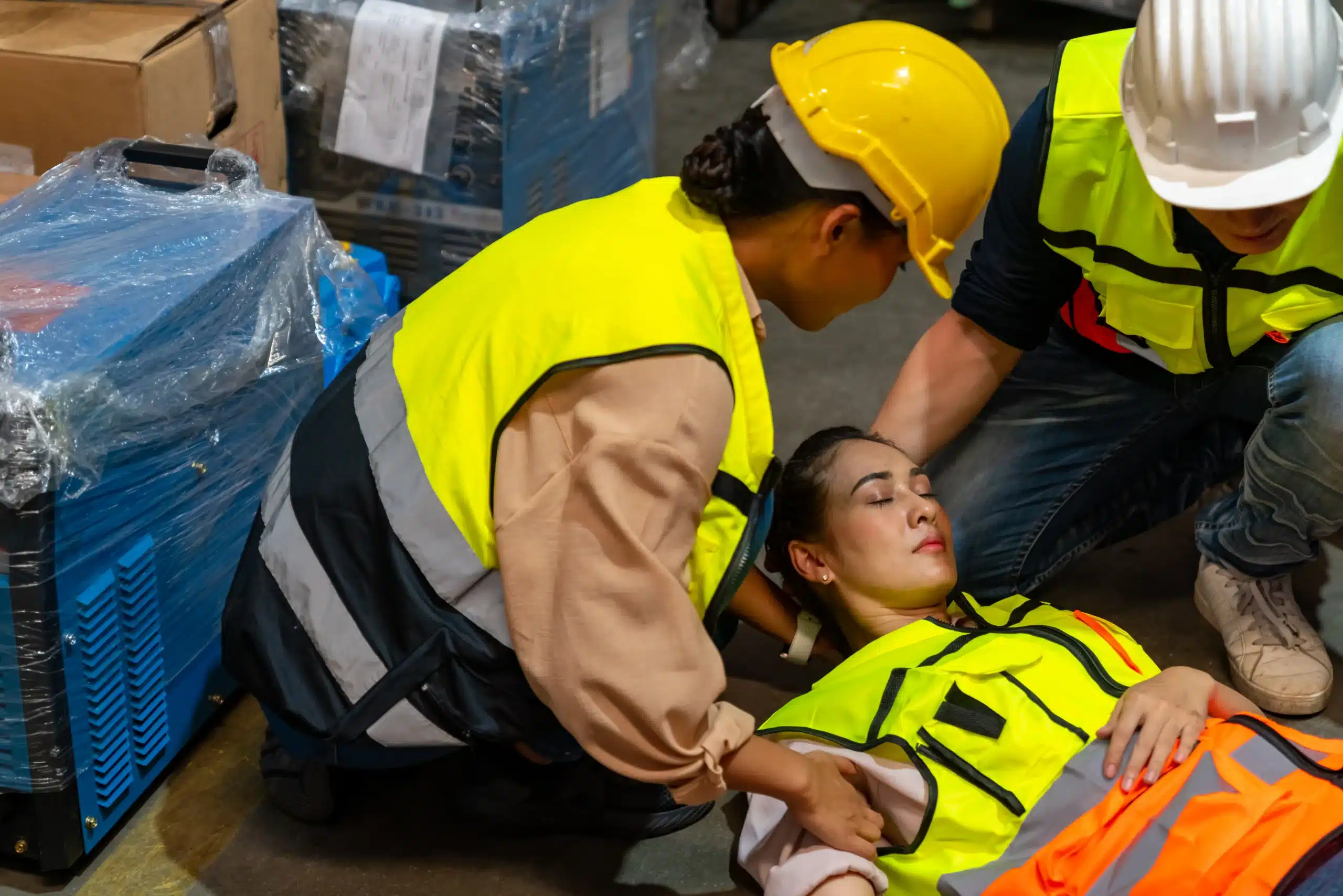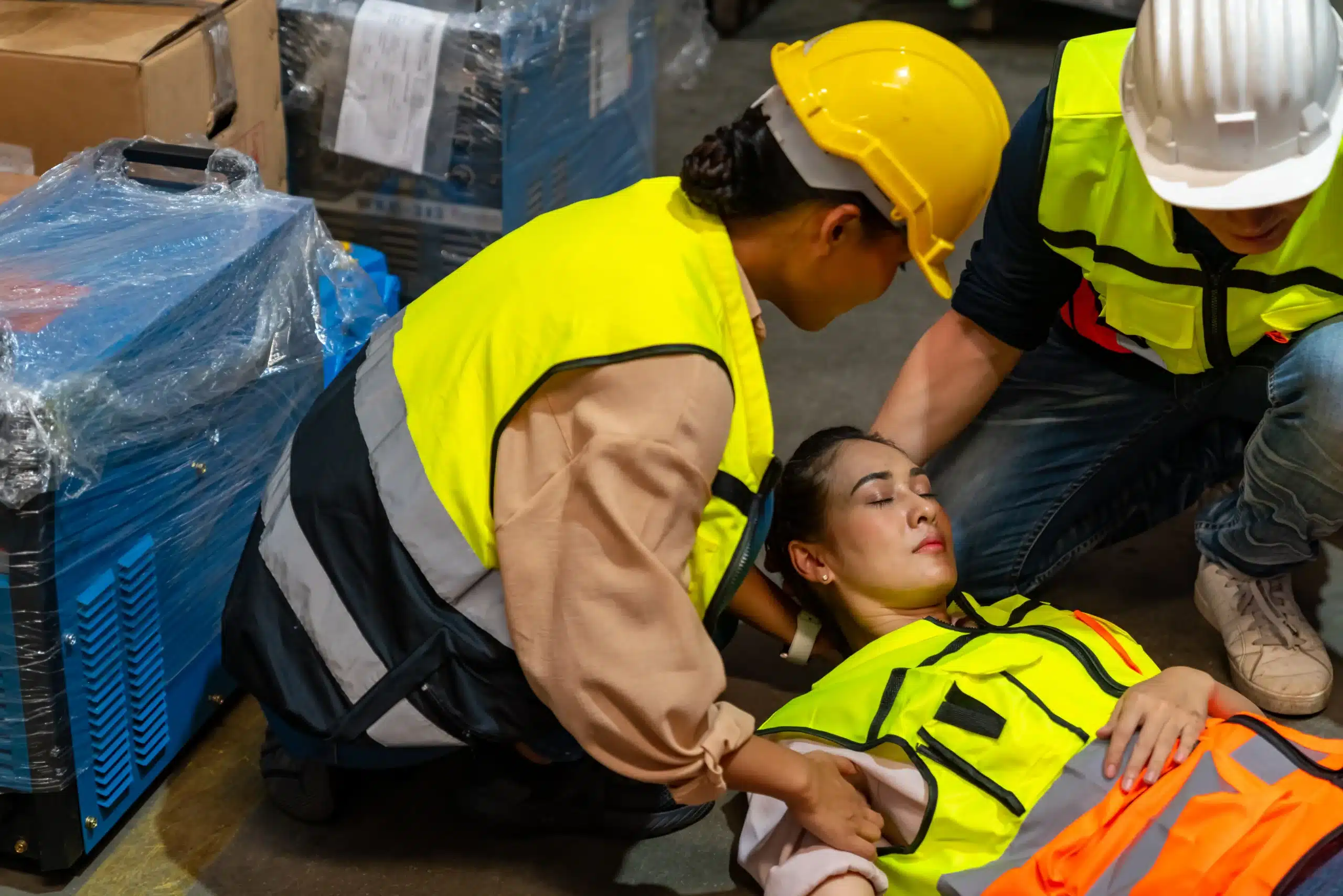Accidents happen. Being equipped to handle them can make all the difference. This guide is your go-to resource for first-aid in Berkeley training. We’ll explore the various types of first-aid courses available, highlight top training providers in the area, and break down the costs and time commitment involved. Whether you need basic first aid and CPR training or a more specialized certification, this guide will help you navigate the options and find the perfect course to meet your needs.
Key Takeaways
- Find the right first-aid course for you: Berkeley offers a range of options, from basic CPR and first aid to specialized courses like wilderness first aid and pediatric care. Consider your individual needs and choose a course that aligns with your goals.
- Multiple training resources are available locally: Reputable providers like Berkeley CPR Classes, the American Red Cross, and UC Berkeley Recreation and Wellness offer various schedules and formats, including in-person, online, and blended learning. Compare providers and read reviews to find the best fit.
- Maintain your skills to stay prepared: First-aid certifications typically expire after two years. Keep your knowledge and skills current by taking refresher courses and practicing regularly. This ongoing commitment ensures you can confidently respond to emergencies.
What is First-Aid Training in Berkeley?
First-aid training in Berkeley gives you practical skills to handle emergencies until professional help arrives. These courses cover essential techniques for managing a range of injuries and illnesses, from minor cuts and burns to more serious situations. It’s a vital skill set for anyone, but especially helpful for parents, teachers, coaches—anyone who regularly interacts with others.
First-aid training typically includes instruction on handling both adult and child emergencies. You’ll learn how to assess a situation, perform CPR, control bleeding, manage shock, and care for common injuries like sprains and fractures. The American Red Cross offers a good overview of what’s covered in a standard first-aid course, along with various course formats—online, in-person, and blended learning—to fit your schedule.
Locally, you can find American Heart Association (AHA) certified courses in CPR and first aid through organizations like Berkeley CPR Classes. They offer daily classes throughout Northern California. UC Berkeley’s Recreation and Wellness department (RecWell) also provides health and safety courses, including CPR/AED and first aid. These local resources make accessing high-quality training easy.
First-Aid Course Types
First-aid courses in Berkeley cover a wide range of skills, from basic CPR to specialized wilderness training. Choosing the right course depends on your individual needs and goals. Here’s a breakdown of common first-aid course types:
Basic First Aid and CPR
Basic first-aid and CPR training gives you the fundamental skills to respond to common emergencies. You’ll learn to manage injuries like cuts, burns, and sprains, and how to perform CPR on adults, children, and infants. Berkeley CPR Classes offers American Heart Association (AHA) certified courses, held daily throughout Northern California. The American Red Cross also provides these courses in several formats, including online, in-person, and blended learning. These essential skills are valuable for anyone, from parents and teachers to workplace responders.
Advanced Life Support (ACLS and PALS)
Advanced Life Support (ALS) courses like ACLS (Advanced Cardiovascular Life Support) and PALS (Pediatric Advanced Life Support) are designed for healthcare professionals. These certifications build upon basic life support skills, teaching participants how to manage respiratory and cardiovascular emergencies. Citywide CPR offers these advanced courses, taught by AHA-certified instructors. ACLS and PALS training are crucial for doctors, nurses, paramedics, and other healthcare providers who require advanced life-saving skills. Berkeley CPR Classes also offers ACLS certification.
Specialized Training (Pediatric, Wilderness, etc.)
Beyond basic and advanced life support, specialized first-aid courses cater to specific needs. Pediatric first aid focuses on caring for infants and children, covering topics like choking, fever, and allergic reactions. Wilderness first aid teaches you how to handle medical emergencies in remote locations, where access to professional medical care might be limited. UC Berkeley Recreation and Wellness offers a variety of these specialized courses, including a comprehensive Wilderness First Responder (WFR) Hybrid course. These specialized courses benefit childcare providers, outdoor enthusiasts, and anyone working or traveling in remote areas.
Top Berkeley First-Aid Training Providers
Finding the right first-aid training can feel overwhelming, so I’ve compiled a list of reputable providers in Berkeley. Whether you’re a healthcare professional, a childcare provider, or simply someone who wants to be prepared for emergencies, there’s a course out there for you.
Berkeley CPR Classes
Berkeley CPR Classes offers a comprehensive range of certifications, including CPR, BLS, ACLS, and more. They focus on providing American Heart Association–compliant courses daily, making it easy to find a class that fits your schedule. For healthcare providers, they offer a BLS certification course. They also offer discount group classes, a great option for workplaces or community groups. Looking for ways to renew your CPR skills? Explore their convenient RQI classes. Berkeley CPR classes also has a low price guarantee.
American Red Cross
The American Red Cross is a trusted name in emergency preparedness. Their Berkeley, CA, chapter offers various CPR and first-aid training options. You can choose from in-person CPR classes, online learning, or a blended learning format. In-person classes include hands-on training and result in a two-year certification that meets OSHA requirements.
UC Berkeley Recreation and Wellness
UC Berkeley Recreation and Wellness provides a variety of health and safety courses, including CPR/AED and first aid. They also offer more specialized training like wilderness medicine and self-defense. Their course catalog includes single-session classes and multi-day programs, some with online components for added flexibility.
Safety Training Seminars
Located on Solano Avenue, Safety Training Seminars offers CPR and first-aid courses tailored to individuals and organizations.
Zero Hour – Emergency Medical Training
Zero Hour – Emergency Medical Training is consistently ranked among the top first-aid class providers in Berkeley. They’re known for their comprehensive approach, preparing participants for real-life emergencies. See what other students are saying by checking out their Yelp reviews.
Adams Safety Training
Adams Safety Training has earned high ratings for its first-aid training classes in Berkeley. Their focus on customer satisfaction makes them a popular choice for those looking for quality instruction. You can find more information and reviews on Yelp.
First-Aid Course Content and Format
Knowing what to expect in your first-aid course helps you prepare and choose the best class for your needs. Here’s a look at the various formats and what you’ll learn.
In-Person Training
In-person first-aid training offers hands-on learning in a traditional classroom setting. You’ll practice skills like CPR and bandaging with instructors and classmates. This format provides immediate feedback and allows you to ask questions in real-time. For in-person learning, check out Berkeley CPR Classes. The American Red Cross also provides in-person first-aid training in Berkeley, CA. These courses typically lead to a two-year certification.
Online and Hybrid Options
For those with busy schedules, online and hybrid first-aid courses offer flexibility. Online components let you learn the material at your own pace, while in-person skills sessions ensure you can perform essential techniques correctly. Berkeley CPR Classes offers blended learning options, combining online study with hands-on practice.
Key Topics Covered
First-aid courses cover a range of essential life-saving skills. You’ll learn CPR for all ages, how to use an automated external defibrillator (AED), and how to control bleeding. The curriculum also covers how to treat burns, seizures, and allergic reactions, including administering an EpiPen. Understanding these fundamentals equips you to respond effectively in various emergency situations.
Certification Process
Upon successful completion of your chosen course—whether in-person or blended learning—you’ll receive a two-year first-aid certification. This certification demonstrates your competency in providing basic first aid. Remember that maintaining your skills is crucial. Renewal and recertification courses are readily available to keep your knowledge and skills current.
First-Aid Training Costs and Duration
Knowing the costs and time commitment involved can help you plan for your first-aid training. Let’s break down the typical expenses and course durations you can expect in Berkeley.
Course Fees and Additional Expenses
First-aid training costs vary depending on the provider, the level of certification, and what’s included. For example, a combined CPR and first-aid course from Berkeley CPR Classes is $140, covering CPR training for all ages, AED instruction, and how to handle emergencies like bleeding and burns. Always double-check with the provider about potential extra costs like study materials or certification card fees.
Discounts and Group Rates
If you’re training a team, ask about group discounts. Many providers, including UC Berkeley, offer reduced rates for organizations training staff. The American Red Cross even provides a free first-aid program for schools. These discounts can make training more accessible for everyone.
Typical Course Durations
First-aid courses typically run between two and eight hours, depending on the program. Online CPR courses often take about four hours, sometimes with a separate in-person skills assessment. This flexibility lets you choose a schedule that fits your life, whether it’s a weekend intensive or a series of weeknight sessions. Confirm the specific schedule and duration with your chosen provider.
Choose the Right First-Aid Course
Finding the right first-aid course involves understanding your specific needs, researching providers, and considering logistical factors like scheduling and location. Let’s break down how to approach each of these steps.
Assess Your Needs
Before you start browsing courses, think about why you’re pursuing first-aid training. Are you required to get certified for your job, like many healthcare providers and childcare workers? Or are you a parent, teacher, or coach looking to feel more prepared for emergencies?
Your reason for taking a class will inform the type of certification you need. Basic first aid and CPR training is a great foundation for anyone, while more advanced certifications, like ACLS or PALS, are often required for specific professional roles. Berkeley CPR Classes offers a range of courses to meet diverse needs, so you can find the right fit.
Compare Provider Ratings and Reviews
Once you have a general idea of the type of course you need, it’s time to research different training providers. Look beyond just the course content and consider the instructor’s experience and teaching style. Reading reviews from past students can give you valuable insights. Sites like Yelp often feature reviews of local businesses offering first-aid training. You can also check out reviews on Best Local Reviews to get a feel for the student experience at Berkeley CPR Classes.
Consider Schedule Flexibility
Finally, think about your schedule and how a first-aid course will fit into your routine. Look for providers that offer classes on various days and times, including weekends or evenings. Berkeley CPR Classes offers classes daily in over 60 cities, making it easier to find a time that works for you. If you’re in Alameda, Oakland, or Berkeley, their local classes might be particularly convenient. Also, consider whether you prefer in-person instruction or if an online or hybrid course would be a better fit. Flexibility is key to making sure you can complete the training successfully.
Start First-Aid Training in Berkeley
Register for Courses
Ready to gain valuable, potentially life-saving skills? Berkeley CPR Classes offers a variety of certification courses, including CPR, BLS, ACLS, and more. Explore their website and find the right fit for your needs. They offer the convenience of daily American Heart Association-aligned courses, making scheduling easier. Many other providers, like the American Red Cross, also offer regular CPR courses in the area.
Upcoming Training Events and Workshops
Keep an eye out for special training events and workshops happening throughout the year. Community organizations and training providers often host these events, sometimes even offering free or discounted rates. Websites like AllEvents.in can help you discover local first-aid training opportunities. Also, check with local resources like the City of Berkeley for free community emergency response training (CERT) programs, as described in this Berkeleyside article.
Prepare for Your First-Aid Class
Before your first-aid class, take a few steps to ensure you get the most out of it. Familiarize yourself with basic first-aid principles. A quick online search, like checking out this guide, can provide a wealth of information. Dress comfortably for your class, as some courses involve hands-on practice and physical activity. Arrive a few minutes early to get settled and prepared. Most importantly, come ready to learn and ask questions!
Maintain Your Certification
Congratulations on completing your first-aid training! Remember that certifications typically expire, often after two years. The Red Cross advises that first-aid skills can decline even sooner, so consider refreshing your knowledge periodically. Staying up-to-date ensures you’re always prepared to respond effectively in an emergency. Check with your certifying organization for recertification requirements and available courses.
Related Articles
- CPR & First Aid Training in Berkeley: Your Guide – Berkeley CPR Classes
- CPR Courses in Berkeley: The Complete Guide – Berkeley CPR Classes
- BLS Certification in Berkeley: Your Comprehensive Guide – Berkeley CPR Classes
- Advanced Cardiac Life Support (ACLS) in Berkeley – Berkeley CPR Classes
- HeartCode PALS Berkeley: Your Certification Guide – Berkeley CPR Classes
Frequently Asked Questions
What’s the difference between basic first aid and advanced life support?
Basic first aid focuses on immediate care for common injuries like cuts, burns, or sprains, and includes CPR. Advanced life support (ALS), encompassing certifications like ACLS and PALS, goes further, equipping healthcare professionals to manage complex cardiovascular and respiratory emergencies. ALS builds upon basic life support skills and requires prior training.
How do I choose the right first-aid course in Berkeley?
Think about why you need the training. Are you fulfilling a job requirement, or simply want to be prepared for everyday emergencies? This helps determine the right certification level. Then, research providers like Berkeley CPR Classes, the American Red Cross, and UC Berkeley Recreation and Wellness, comparing their course offerings, schedules, and student reviews.
What can I expect during a first-aid course?
Expect a mix of theoretical learning and practical exercises. You’ll learn how to assess emergency situations, perform CPR on adults, children, and infants, control bleeding, and manage various injuries and illnesses. Many courses include hands-on practice with mannequins and other equipment, allowing you to apply your knowledge in a simulated environment.
How much does first-aid training cost, and how long does it take?
Costs vary depending on the provider and the type of course. Basic first-aid and CPR courses typically range from $75 to $150. Advanced certifications like ACLS and PALS are more expensive. Most basic courses last between four and eight hours, sometimes spread over multiple sessions. Check with specific providers for their pricing and scheduling details. Many offer discounts for groups.
How do I maintain my first-aid certification after completing a course?
First-aid certifications usually expire after two years. To stay current, you’ll need to take a recertification course. Check with your certifying organization, such as the American Red Cross or the American Heart Association, for renewal requirements and available courses. Regularly practicing your skills and staying updated on any changes in first-aid guidelines is also important.


